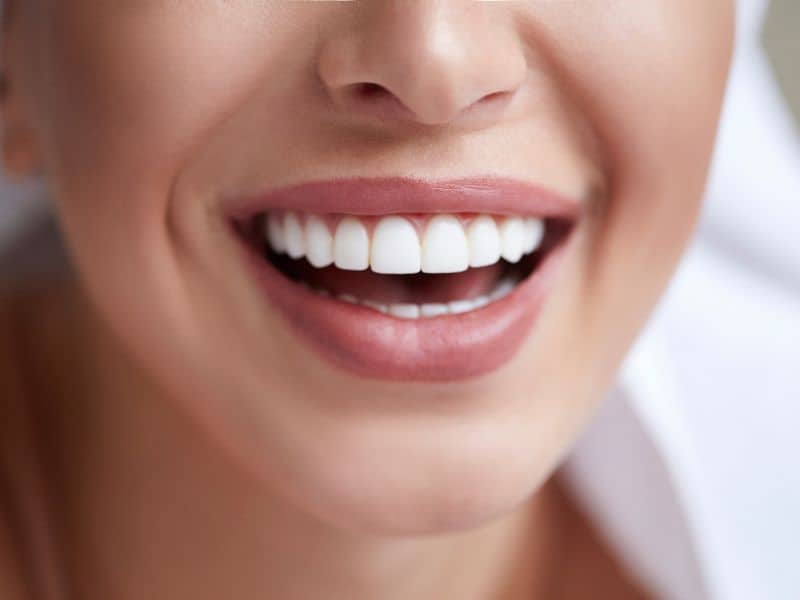6 Ways to Improve Oral Hygiene
Home » Fuquay-Varina Dental Blog » 6 Ways to Improve Oral Hygiene
Achieving healthy teeth involves a routine you engage in for a lifetime. It is important to take the proper steps every day to take care of your teeth and prevent problems. Being diligent in performing these steps will improve your oral hygiene, which will, in turn, create optimum oral health.
At Hamby Family Dental Center, your Fuquay-Varina dentists, we work with our patients by educating them on the proper steps to maintain good oral hygiene. In this article, we discuss six healthy dental habits to improve oral hygiene.
Oral Hygiene

Oral hygiene is the practice of keeping your mouth clean and free from disease by regularly performing crucial actions that maintain optimum oral health. Oral hygiene, also called dental hygiene, is a routine of cleaning your teeth and gums to maintain a healthy mouth. The best oral hygiene routine is one that you can practice consistently.
The Importance of Oral Hygiene
Good oral hygiene helps prevent tooth decay (cavities, dental caries), gum disease (gingivitis, periodontitis), and bad breath (halitosis). This means that you can stop oral health problems before they start by taking good care of your teeth and gums.
Oral health is linked to whole-body health. For example, if an infection is present in your mouth, your bloodstream can carry the bacteria to other areas of your body, which can lead to other health concerns like heart disease and stroke. Keeping your teeth and gums healthy is an important part of long-lasting overall health.
Signs of Poor Oral Hygiene
Several warning signs can indicate oral health problems. The most common signs of poor oral hygiene include:
- Bleeding gums: Gums that bleed easily during brushing and flossing can be a sign of gingivitis or periodontitis.
- Tooth decay (cavities): Visible cavities or dark spots on teeth suggest tooth decay is a direct consequence of plaque and bacteria buildup due to inadequate brushing and flossing
- Chronic bad breath (halitosis): Persistent bad breath, often caused by bacteria accumulating in the mouth
- Plaque and tartar buildup: A yellow or brown film on teeth, especially along the gumline, indicates plaque and tartar buildup, which can lead to gum disease if not removed regularly
- Tooth sensitivity: Increased sensitivity to hot or cold and to sugary foods can indicate enamel erosion or cavities
- Loose or shifting teeth: Loose or shifting teeth can be a sign of advanced periodontitis, which is a serious form of gum disease that can lead to tooth loss
- Gum recession: When gums start pulling away from teeth, it’s a sign of gum disease
- Mouth sores or ulcers: Recurrent mouth sores or ulcers can be a sign of oral infections or inflammation
- Swollen gums: Swollen, red, or inflamed gums can be an indicator of gingivitis or periodontitis, with of which are caused by poor oral hygiene and can lead to further complications if left untreated
- Gingivostomatitis: A condition causing inflammation of the gums and mouth lining, often due to a viral infection, particularly HSV-1, Coxsackievirus, Streptococcus, and Actinomyces, as well as poor oral hygiene
6 Ways to Improve Oral Hygiene
Here are 6 best practices in dental care to improve your oral hygiene.
1. Brushing
Brush your teeth at least twice a day, once in the morning and once before bed, using a soft-bristled toothbrush and fluoride toothpaste. Other tips for proper brushing include:
- Brush for at least two minutes each time.
- Use a proper technique by placing the toothbrush at a 45-degree angle toward your gums to help sweep away plaque and bacteria.
- Be sure to brush all surfaces of your teeth, including the backs and sides.
- Always brush your tongue gently to remove bacteria and freshen breath.
2. Flossing
Flossing removes plaque and food particles that a toothbrush can’t reach, such as areas between teeth and under the gumline. Floss at least twice a day, using either dental floss, interproximal brushes, or floss picks to clean in between your teeth.
3. Mouthwash
Mouthwash helps to kill bacteria and freshen breath. A best practice is to rinse your mouth with mouthwash for 30 seconds after brushing and flossing. Use a mouthwash that contains fluoride to help strengthen teeth.
4. Diet
Limit sugary foods and drinks that contribute to tooth decay. Eat foods that contain essential vitamins and nutrients that contribute to healthy teeth and gums.
5. Regular Dental Checkups
Be sure to visit your dentist regularly for checkups and cleanings, as recommended by your dentist, typically every six months. Regular checkups can help detect and address any potential problems early.
6. Avoid smoking and other tobacco products
Smoking significantly impacts oral hygiene. It can lead to tooth staining, increased plaque and tartar buildup, gum disease, tooth loss, bad breath, and an increased risk of oral cancer.
Contact Hamby Family Dental Center Today for Better Oral Health
Our dental professionals at Hamby Family Dental Center are committed to improving your oral health. We check for signs in your mouth, gums, and teeth that may be affecting your overall well-being. Keeping up with your bi-annual dental exams is an important part of your oral health. We are accepting new patients. Contact us today to schedule your check-up. Call us at 919-552-2431 or complete the form below to request an appointment.
Appointment Request
